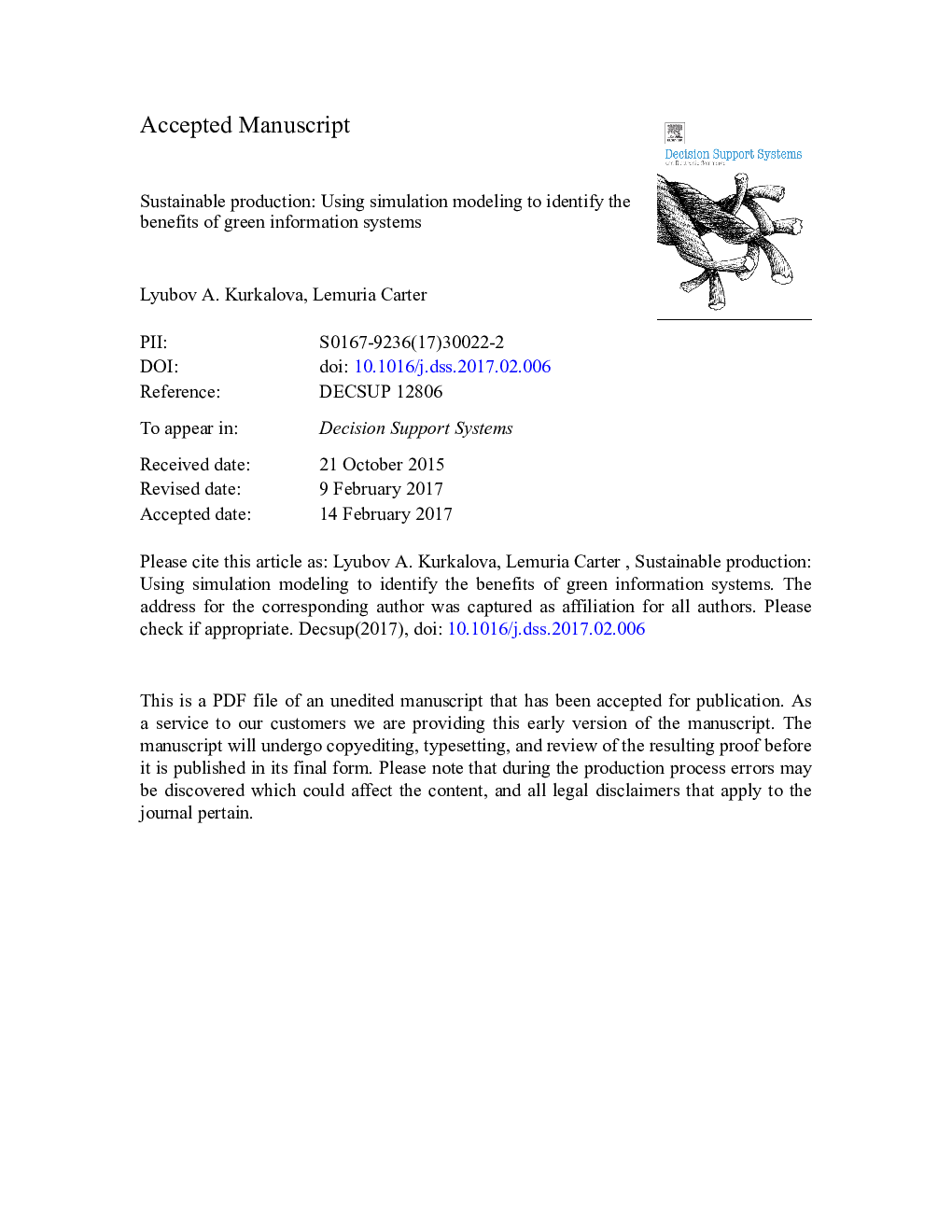| Article ID | Journal | Published Year | Pages | File Type |
|---|---|---|---|---|
| 4972429 | Decision Support Systems | 2017 | 38 Pages |
Abstract
Researchers and practitioners highlight the potential for information systems to promote sustainability in agricultural production, but little is known about the private and social benefits of specific agricultural decision support tools. In this study, we utilize the resource-based view to assess a specific green technology using an agricultural-economics simulation to estimate the quantitative benefits of this technology expressed as dollars saved and reduced greenhouse gas emissions. In particular, we employ a five-step simulation modeling approach within a micro-economic model of crop production to assess the ability of yield monitors to promote liquefied petroleum (LP) gas savings and subsequently reduce production costs, reduce greenhouse gas (GHG) emissions associated with LP gas burning, and generate additional revenue at a market for GHG mitigation credits. We estimate that the total benefits of using the green IS to improve the harvesting decision would have been $82 million in post-harvest cost savings and a significant reduction in greenhouse gas emissions. We present this simulation modeling approach, a common methodology in environmental sciences and economics, as a viable methodology for IS researchers interested in modeling intricate decision-making processes that are impacted by technology.
Related Topics
Physical Sciences and Engineering
Computer Science
Information Systems
Authors
Lyubov A. Kurkalova, Lemuria Carter,
